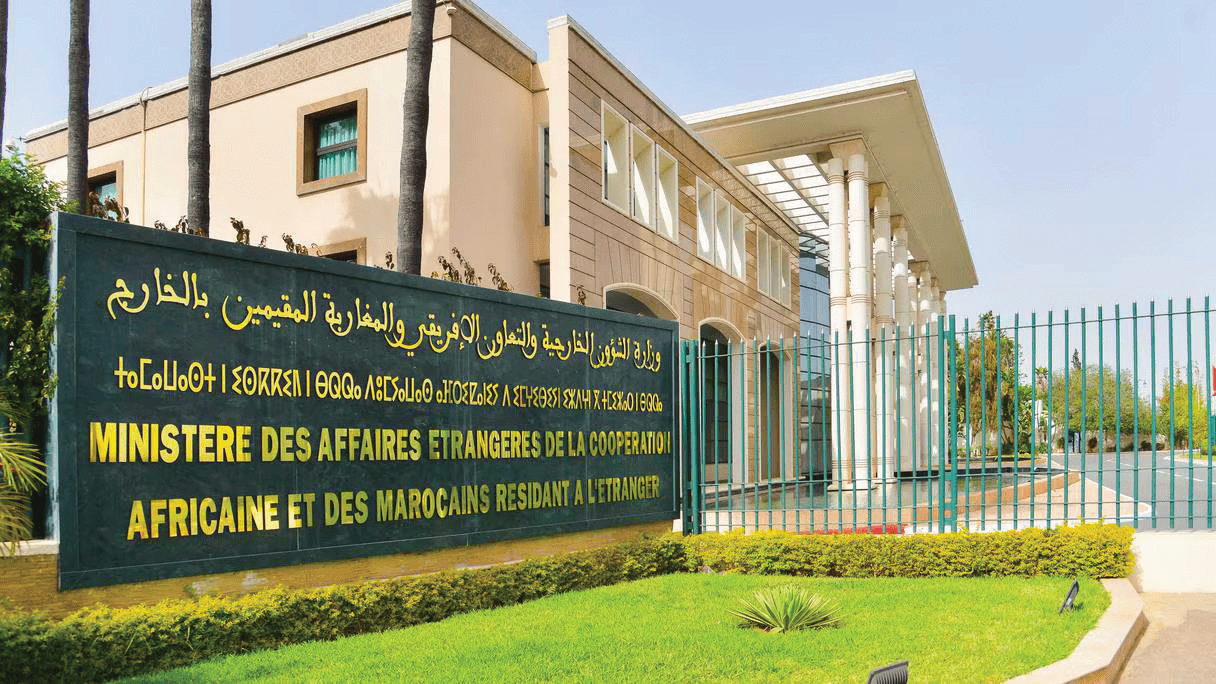Marrakech – Morocco has joined more than 30 Arab and Muslim countries in signing a joint statement condemning Israeli Prime Minister Benjamin Netanyahu’s recent endorsement of the illegal “Greater Israel” concept.
During an interview on August 12 with I24News, when asked if he adhered to the “vision” of a “Greater Israel, Netanyahu responded “very much,” delivering the statement with a knowing smile and no walk-back, triggering immediate outrage across the Arab world.
The joint statement, supported by the secretaries general of the Arab League, the Organization of Islamic Cooperation (OIC), and the Gulf Cooperation Council (GCC), denounces Netanyahu’s comments as a “flagrant violation of international law” and “a direct threat to Arab national security, state sovereignty, and regional and international peace and security.”
Arab governments from Saudi Arabia to Qatar, Egypt, and Jordan condemned the remarks as evidence of “a mentality steeped in colonial delusions,” a confirmation of expansionist intent.
Egypt, whose Sinai was occupied by Israel following the 1967 war, demanded clarifications about Netanyahu’s statements, saying they reflect “provocation to instability” and “rejection of the peace option in the region.”
Jordan’s foreign ministry condemned the remarks as a “dangerous provocative escalation and a threat to countries’ sovereignty.”
Iraq similarly denounced what it called “expansionist ambitions of the occupying entity,” adding that “these statements represent a clear provocation to the sovereignty of countries.”
Saudi Arabia expressed its “total rejection of the colonization and expansion ideas adopted by Israeli occupation authorities,” while reiterating “the historical and legal right of the Palestinian people to establish their independent state.”
The statement also condemned Israeli Interior Minister Bezalel Smotrich’s approval of a settlement plan in the “E1” zone of the West Bank and his rejection of an independent Palestinian state.
The signatories further reaffirmed their rejection of annexation policies, settler violence, and Israeli Occupation Force’ (IOF) incursions into Palestinian cities and camps.
This verbal escalation comes as Smotrich approved the construction of a colony designed to separate East Jerusalem from the West Bank, both occupied territories, in a move critics say aims to torpedo the creation of a Palestinian state.
Theology as cartography
For extremist Israelis, the concept of “Greater Israel” would extend from the Nile to the Euphrates in Iraq, encompassing parts of territories in neighboring countries that these ultranationalist Zionists dream of occupying. The biblical notion draws from verses in Genesis 15:18, Exodus 23:31, Deuteronomy 11:24, and Joshua 1:4 that outline boundaries far beyond Israel’s current borders.
Critics characterize “Greater Israel” as dangerous territorial irredentism. The concept transforms liturgy into latitude by elevating Greater Israel from scripture and slogans into a political program. It represents maximalist cartography dressed in messianic rhetoric that collapses ethics into acreage and swaps statecraft for a theology of permanent exception.
Israel’s application of the “Greater Israel” doctrine has proceeded methodically. Piece by piece, it has entrenched irreversible control over the West Bank, normalized its occupation through diplomatic breakthroughs, and tested its reach in Gaza with unprecedented genocidal acts, destruction, and displacement.
The Golan Heights, seized from Syria in 1967 and unilaterally recognized by the United States as Israeli territory in 2019, exemplifies how conquest has been laundered into permanence.
The rhetoric around Greater Israel has not only intensified but become explicitly unapologetic. Israel’s far-right government no longer attempts to hide its expansionist agenda.
Netanyahu himself declared in January 2024 that Israel must retain “security control over all territory west of the Jordan River” – a statement that amounts to a formal “river to sea” position merely disguised with security terminology.
Finance Minister Smotrich has openly advanced his “Decisive Plan” that baldly outlines permanent Israeli sovereignty and creates a framework for systematic annexation through bureaucratic means.
Even more explicit is National Security Minister Itamar Ben-Gvir, who has abandoned all pretense of equality, stating with remarkable candor: “My right, the right of my wife and my children, to move around Judea and Samaria [West Bank] is more important than freedom of movement for the Arabs [Palestinians].” These are not isolated slips but coordinated policy positions from Israel’s highest officials.
Netanyahu’s repeated talk of a “New Middle East” is not the visionary project he claims but a recycled slogan. Originally popularized by Shimon Peres in his 1993/1994 book as a utopian vision of post-Oslo economic integration, today’s version is less about prosperity and more about power. It represents a map of the region carved up to fit Israel’s security obsessions and expansionist appetites, sold under the false banner of “stability” and “peace.”
Demographically, the project faces overwhelming challenges. An Arabic Rawabet Center think-tank analysis in 2016 noted the global Jewish population was too small to sustain the Greater Israel project.
Even with today’s approximately 15.8 million Jews worldwide (about 7.3 million in Israel), representing less than 0.2% of the global population, there remains a vast gap between territorial ambition and human resources.
Critics argue the project is strategically self-defeating. “Security control” over millions of unwilling subjects produces not stability but a permanent mobilization. It creates perpetual reserve duty, perpetual guard duty, perpetual flashpoints, while organizing politics around sacred soil corrodes the state and breeds messianic governance.
Regionally, the “river to sea” frame – whether chanted by Palestinians or coded into Israeli platforms – makes the conflict zero-sum, ensuring it remains endless. Critics add that Israel cannot normalize relations with neighbors or stabilize alliances while simultaneously signaling that Palestinian self-determination will never be realized.
The project undermines international legitimacy, strengthens boycott movements, and provides ammunition to Israel’s harshest critics. Put simply, if Zionism was meant to normalize Jewish self-determination, “Greater Israel” represents its self-abnormalization – solidifying the so-called “only democracy in the Middle East” into a permanent occupation that erodes its foundational values.
Read also: Morocco Condemns Israeli Maps Showing ‘Historic Israel’ Over Arab Territories
